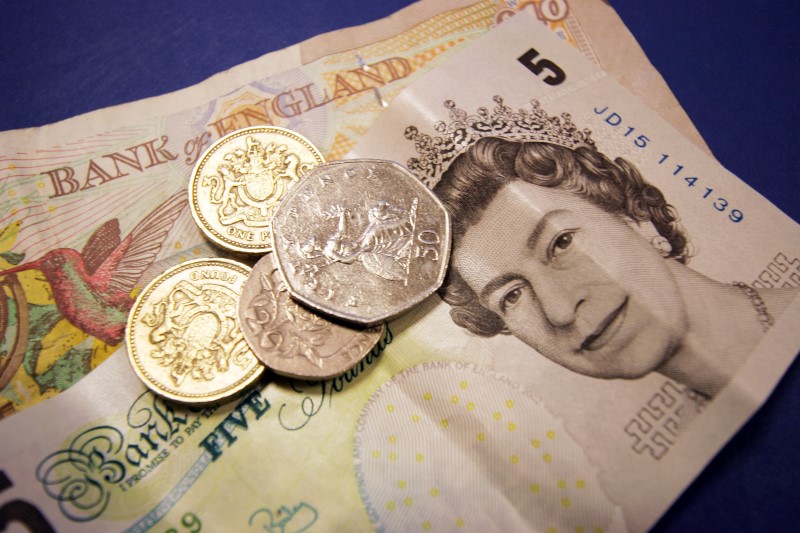By Jamie McGeever and Patrick Graham
LONDON (Reuters) - British financial markets were engulfed in further turmoil on Monday, with 10-year government borrowing costs sinking below 1 percent for the first time and sterling hitting a 31-year low against the dollar as investors bet Britain's vote to leave the EU will trigger a Bank of England rate cut.
Billions of pounds were wiped off the value of British bank stocks as a political vacuum and economic uncertainty opened up by Thursday's referendum prompted widespread downward revisions to the outlook for UK growth, sterling and interest rates.
Sterling fell as low as $1.3122
The market value of Barclays (L:BARC) and Royal Bank of Scotland (L:RBS) is down by a third in just two days, meaning the UK taxpayer has lost 8 billion pounds since Thursday via the Treasury's 72 percent stake in RBS.
"The UK economy is headed for recession," analysts at Llewelyn Consulting said on Monday.
"Potential output has been cut at a stroke (and) the country's large twin deficits leave it exposed to capital flight. Only the Bank of England remains fully functional. It has the tools to ensure financial solvency, but not economic activity," they said
Finance minister George Osborne said on Monday the economy would have to face up to "an adjustment" as it dealt with the fallout of 'Brexit'. But investors again shunned the pound and sought the safety of government bonds.
UK money and bond markets moved to price in lower interest rates, with swaps rates now almost fully implying a 0.25 percentage-point cut from the BoE by the end of the year.
The yield on 10-year UK government bonds tumbled as much as 15 basis points to a new low of 0.933 percent (GB10YT=RR), and two-year yields fell more than 10 basis points to a four-year low of 0.129 percent (GB2YT=RR).
The 10-year yield has fallen 44 basis points since Thursday, its biggest two-day fall since March 2009.
"You'd have expected there to be some psychological barrier to gilts breaking through 1 percent, but not today," said Luke Hickmore, senior investment manager at Aberdeen Asset Management.
"Gilt yields just kept dropping. It's no wonder. There's no political leadership in the UK right when markets need the reassurance of direction," he said.
Sterling fell almost 4 percent against the dollar to a fresh 31-year low of $1.3122
The pound's fall on Friday was the largest in modern history, reaching more than 10 percent against the dollar at one stage, and was also the largest decline since at least the 1970s on a trade-weighted basis.
RBC Capital Markets now expect the BoE to cut rates by 25 basis points next month to 0.25 percent, and again in August down to 0.1 percent along with an additional 50 billion pounds of quantitative easing bond-buying stimulus. Several banks, including Goldman Sachs (NYSE:GS) and Bank of America (NYSE:BAC) Merrill Lynch, cut their sterling forecasts too.
"With the Leave vote creating greater uncertainty over the outlook for the economy and BoE policies biased towards further easing/renewed QE, sterling is vulnerable to further near-term selling pressure," said Athanasios Vamvakidis, FX strategist at BAML.
"A push below $1.30 cannot be ruled out," he added.

Others, like Unicredit (MI:CRDI), reckon the pound will fall even further, perhaps to $1.20 or even lower.